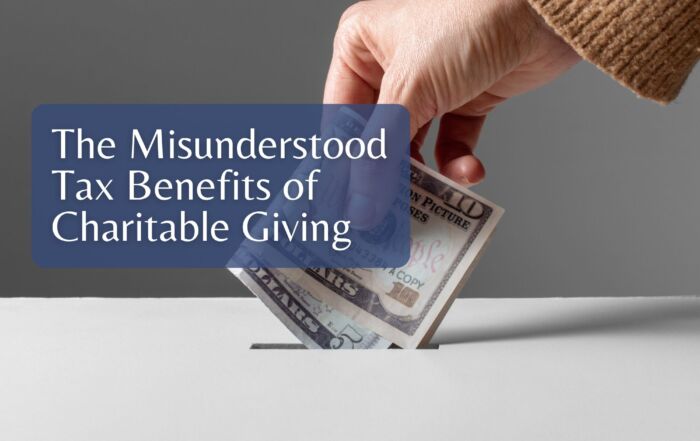How to Use a Family Covenant to Pass on Your Legacy

A family covenant is defined as an agreement that you form with another person, group of people, or company. In James E Hughes Jr.’s book Family Wealth: Keeping It in the Family, he speaks on building a generational wealth and passing on your legacy through a family covenant. While his book is primarily geared towards high-net-worth individuals, the core purpose of the covenant can be translated to any family in diversifying financial backgrounds.
Identify your Family’s Core Values
It is important to cast the vision for your family. In order to steward this conversation in a fruitful manner, the first thing to do is to decide what your families core values are. Think about the best companies and organization, these have core values that help them be successful. It is the backbone to all of their decision making. Chick-fil-A, for example, has core values that extend beyond making delicious chicken. The company’s purpose is to, “To glorify God by being a faithful steward of all that is entrusted to us. To have a positive influence on all who come in contact with Chick-fil-A.” Just like Chick-fil-A, your family needs to have its own purpose and own central values system to align with. This will help your family navigate decisions in a manner that uplifts your family towards multi-generational success.
Determine the Family’s Most Valuable Characteristics
After identifying your family’s purpose and core values, it is time to look inwards and see the value each member brings to the family. In this time, realize one another’s attributes that are vital to the family legacy. That can be something like one of your family members being a politician in your local area, someone being a great hostess for family gatherings, or an uncle is great with cars. These are roles that are integral to the family mold. By utilizing your family’s value, it can save money and grow wealth, while also teaching the next generation valuable skill sets.
Set Clear Elder Roles
Everyone has a seat at the table in your family. Everyone’s opinion has a voice and should not be neglected. That being said, most families have an unspoken hierarchy of eldership from grandparents to grand-children. There are clear opportunities for mentorship and leadership within a family unit. Grandchildren will migrate to their grandparents for love and affection during family gatherings. This is a prime opportunity for mentorship with the grandparents able to pass on their multi-generational knowledge to the youngest family members. Grandparents do not bear the punishable tremor that parents can hold. The middle generation is the one that begins to hold the primary decision power, and this generation must make a commitment to keep the family unit intact once the primary couple passes away.
Educate your Family on Proper Financial Management
One of the primary reasons a family’s generational wealth plummets is because the second generation depletes the wealth due to poor financial management skills. It is not enough to simply delay giving funds until they are 30 years old, instead practices of financial success and expectations must be carefully formatted and educated to the next generation. A great start to this is to begin integrating financial budgeting strategies with your children from a young age. With programs like the Greenlight Card, you can give first-hand experiences with finances to your children. In addition, it is important to begin having conversations about how your family manages money. Money is not a taboo topic for family to have; it is a necessity for those with generational wealth.
Establishing a Family Covenant
The key takeaways are, confidently discuss finances with your family including your children so that they can make strong financial decisions, begin the process of determining your family’s purpose and aligning your family’s decisions with those goals, and acting in your mentorship/eldership roles to provide the stability your family needs.
Have more questions? Contact Us
Michaela Dowdy
Financial Planning Associate
Share This Story, Choose Your Platform!
Wiser Wealth Management, Inc (“Wiser Wealth”) is a registered investment adviser with the U.S. Securities and Exchange Commission (SEC). As a registered investment adviser, Wiser Wealth and its employees are subject to various rules, filings, and requirements. You can visit the SEC’s website here to obtain further information on our firm or investment adviser’s registration.
Wiser Wealth’s website provides general information regarding our business along with access to additional investment related information, various financial calculators, and external / third party links. Material presented on this website is believed to be from reliable sources and is meant for informational purposes only. Wiser Wealth does not endorse or accept responsibility for the content of any third-party website and is not affiliated with any third-party website or social media page. Wiser Wealth does not expressly or implicitly adopt or endorse any of the expressions, opinions or content posted by third party websites or on social media pages. While Wiser Wealth uses reasonable efforts to obtain information from sources it believes to be reliable, we make no representation that the information or opinions contained in our publications are accurate, reliable, or complete.
To the extent that you utilize any financial calculators or links in our website, you acknowledge and understand that the information provided to you should not be construed as personal investment advice from Wiser Wealth or any of its investment professionals. Advice provided by Wiser Wealth is given only within the context of our contractual agreement with the client. Wiser Wealth does not offer legal, accounting or tax advice. Consult your own attorney, accountant, and other professionals for these services.





